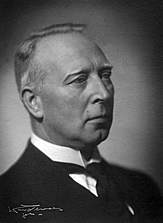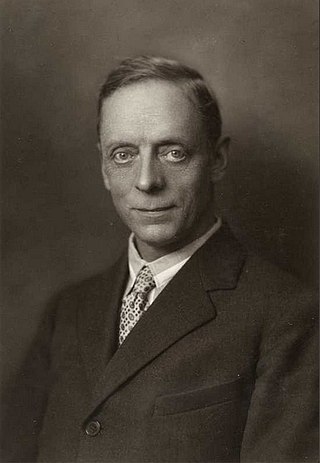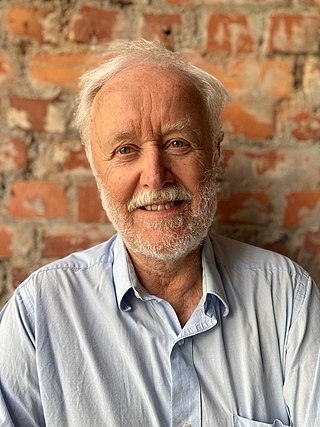Related Research Articles

Justin Martyr, also known as Justin the Philosopher, was an early Christian apologist and philosopher.

Messianic Judaism is a modernist and syncretic movement of Protestant Christianity that incorporates some elements of Judaism and other Jewish traditions into evangelicalism.

Ebionites as a term refers to a Jewish Christian sect, which viewed poverty as a blessing, that existed during the early centuries of the Common Era. The Ebionites embraced an adoptionist Christology, thus understanding Jesus of Nazareth as a mere man who, by virtue of his righteousness in following the Law of Moses, was chosen by God to be the messianic "prophet like Moses". A majority of the Ebionites rejected as heresies the Orthodox Christian beliefs in Jesus' divinity, virgin birth and substitutionary atonement; and therefore maintained that Jesus was born the natural son of Joseph and Mary, sought to abolish animal sacrifices by prophetic proclamation, and died as a martyr in order to move all Israel to repentance.

The Gospel of the Hebrews, or Gospel according to the Hebrews, is a lost Jewish–Christian gospel. The text of the gospel is lost, with only fragments of it surviving as brief quotations by the early Church Fathers and in apocryphal writings. The fragments contain traditions of Jesus' pre-existence, incarnation, baptism, and probably of his temptation, along with some of his sayings. Distinctive features include a Christology characterized by the belief that the Holy Spirit is Jesus' Divine Mother and a first resurrection appearance to James, the brother of Jesus, showing a high regard for James as the leader of the Jewish Christian church in Jerusalem. It was probably composed in Greek in the first decades of the 2nd century, and is believed to have been used by Greek-speaking Jewish Christians in Egypt during that century.

Jewish Christians were the followers of a Jewish religious sect that emerged in Judea during the late Second Temple period. The Nazarene Jews integrated the belief of Jesus as the prophesied Messiah and his teachings into the Jewish faith, including the observance of the Jewish law. The name may derive from the city of Nazareth, or from prophecies in Isaiah and elsewhere where the verb occurs as a descriptive plural noun, or from both. Jewish Christianity is the foundation of Early Christianity, which later developed into Christianity. Christianity started with Jewish eschatological expectations, and it developed into the worship of a deified Jesus after his earthly ministry, his crucifixion, and the post-crucifixion experiences of his followers. Modern scholarship is engaged in an ongoing debate as to the proper designation for Jesus' first followers. Many see the term Jewish Christians as anachronistic given that there is no consensus on the date of the birth of Christianity. Some modern scholars have suggested the designations "Jewish believers in Jesus" or "Jewish followers of Jesus" as better reflecting the original context.

Johan Ernst Gunnerus was a Norwegian bishop and botanist. Gunnerus was born at Christiania. He was bishop of the Diocese of Nidaros from 1758 until his death and also a professor of theology at the University of Copenhagen.
Hyam Maccoby was a Jewish-British scholar and dramatist specialising in the study of the Jewish and Christian religious traditions. He was known for his theories of the historical Jesus and the origins of Christianity.

The Gospel of the Ebionites is the conventional name given by scholars to an apocryphal gospel extant only as seven brief quotations in a heresiology known as the Panarion, by Epiphanius of Salamis; he misidentified it as the "Hebrew" gospel, believing it to be a truncated and modified version of the Gospel of Matthew. The quotations were embedded in a polemic to point out inconsistencies in the beliefs and practices of a Jewish Christian sect known as the Ebionites relative to Nicene orthodoxy.

MF Norwegian School of Theology, Religion and Society, formerly the Free Faculty of Theology and MF Norwegian School of Theology, is an accredited Norwegian Specialized University focused on Theology, Religion, Education and Social Studies, located in Oslo, Norway.

The Norwegian Academy of Science and Letters is a learned society based in Oslo, Norway. Its purpose is to support the advancement of science and scholarship in Norway.
The New Testament frequently cites Jewish scripture to support the claim of the Early Christians that Jesus was the promised Jewish Messiah, but few of these citations are actual predictions in their original context. The majority of these quotations and references are taken from the Book of Isaiah, but they range over the entire corpus of Jewish writings.

Sigmund Olaf Plytt Mowinckel was a Norwegian professor, theologian and biblical scholar. He was noted for his research into the practice of religious worship in ancient Israel.

The Jewish–Christian Gospels were gospels of a Jewish Christian character quoted by Clement of Alexandria, Origen, Eusebius, Epiphanius, Jerome and probably Didymus the Blind. All five call the gospel they know the "Gospel of the Hebrews". But most modern scholars have concluded that the five early church historians are not quoting the same work. As none of the works survive to this day attempts have been made to reconstruct them from the references in the Church Fathers. The majority of scholars believe that there existed one gospel in Aramaic/Hebrew and at least two in Greek, although a minority argue that there were only two, in Aramaic/Hebrew and in Greek.
Magne Skodvin was a Norwegian educator and historian.
The Royal Norwegian Society of Sciences and Letters is a Norwegian learned society based in Trondheim. It was founded in 1760 and is Norway's oldest scientific and scholarly institution. The society's Protector is King Harald V of Norway. Its membership consists of no more than 435 members elected for life among the country's most prominent scholars and scientists.

Knut Dahl was a Norwegian zoologist and explorer who made important bird collections in northern Australia.
Helge Julius Jakhelln Dyvik is a Norwegian linguistics professor.
Arnold Genekowitsch Fruchtenbaum is a Russian-born American theologian. He is a leading expert in Messianic Judaic theology and the founder and director of Ariel Ministries, an organization which prioritizes the evangelization of Jews in an effort to bring them to the view that Jesus is the Jewish Messiah. He lectures and travels widely.

Theodor Christian Brun Frølich was a Norwegian physician and Professor of Pediatrics at the University of Oslo. In 1938 he was nominated for the Nobel Prize in Physiology or Medicine for his pioneering contributions to the study of the treatment of Scurvy and to the development of Vitamin C.

Ravndal grew up in Molde, Norway. In 1961 he enrolled at the Norwegian Institute of Technology to study physics. In 1966 he completed the degree of sivilingeniør with a dissertation in the area of theoretical physics under the supervision of Harald Wergeland. During the summer of 1965, he interned at CERN where he worked with an experimental particle physics group to study bubble chamber images for the detection of new elementary particles.
References
- ↑ Årbok – Det Norske videnskaps-akademi Norske videnskaps-akademi i Oslo – 2007
- ↑ Kongelige Norske Videnskabers Selskab, Forhandlinger Kongelige Norske videnskabers selskab – 1996 "Oskar Skarsaune er født i Trondheim i 1946. Han ble cand. theol, i 1972 og disputerte for den teologiske doktorgrad ved Universitetet i Oslo... "
- ↑ Hebrew Bible, Old Testament Magne Sæbø – 2008 "Oskar Skarsaune (b. 1946), Professor of Church History, Norwegian School of Theology, Oslo. Selected publications: "
- ↑ Emily J. Hunt Christianity in the Second Century p54 "In his book The Proof from Prophecy,7 Oskar Skarsaune suggests that Justin used Paul's collection of Old Testament quotations as a testimony source. Skarsaune has discovered several correlations between Paul's citations of Hebrew ...
- ↑ Paul and the Second Century 2011 p111 Michael F. Bird, Joseph R. Dodson "Oskar Skarsaune has Justin as the key focus of his analysis that probes the use of Justin's citational techniques."
- ↑ Religious identity and the invention of tradition p67 J. W. van Henten, Anton W. J. Houtepen – 2001 "Perhaps inspired by this, Oskar Skarsaune has criticized the standard interpretation of Justin's conversion on two different but interrelated points. 15 On the one hand, Skarsaune demonstrated convincingly how Justin's dialogue should ..."
- ↑ The New Testament and early Christian literature in Greco-Roman ... 2006 p419 David Edward Aune, John Fotopoulos "As Oskar Skarsaune has demonstrated, Isa 2:3f “is the testimony on the apostolic mission in Justin.”57 In my opinion this statement can be expanded to include a majority of patristic writers from the second through the fifth centuries."
- ↑ Thomas E. Phillips Contemporary studies in Acts 2009 p57 "Oskar Skarsaune has paid great attention to the proof-text tradition that he finds behind Justin's writings, and has shown that it contains significant parallels with the thought of Luke as that thought is expressed in each of Luke's ..."
- ↑ Carl Sommer We look for a kingdom: the everyday lives of the early Christians 2007 p114 -"... as Oskar Skarsaune has shown, the scholars who see a contradiction between Justin's two conversion accounts have fundamentally misunderstood Justin's quest .22 Justin did not examine philosophies simply for the intellectual ..."
- ↑ James Carleton Paget, Jews, Christians and Jewish Christians in Antiquity 2010 p353 "Oskar Skarsaune has argued that a central claim of the Ebionites on the basis of what we read in Irenaeus and related sources, lies in the view that Jesus was the son of Joseph,116 and that this had the consequence that they gave great ..."
- ↑ Pro ecclesia vol.14 American Lutheran Publicity Bureau, Center for Catholic and Evangelical Theology – 2005 "... a number of distinguished New Testament scholars have contributed to the forthcoming multivolume work The History of Jewish Believers in Jesus from Antiquity to the Present, edited by Oskar Skarsaune.46 Skarsaune has close ties to the Messianic community in Israel and has invited Messianic Jewish contribution to the project .47 The work is notable in part because it offers a reassessment of the commonly ..."